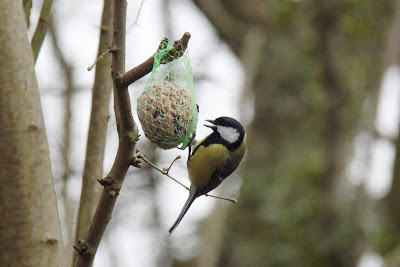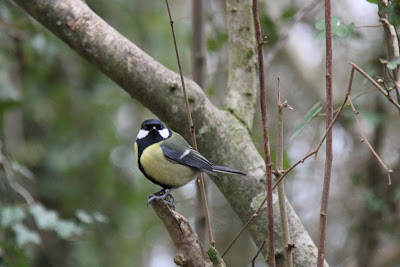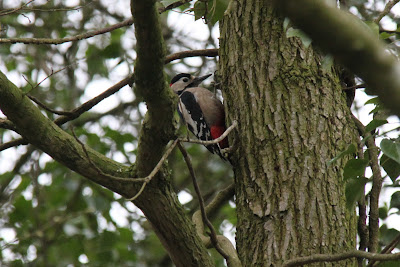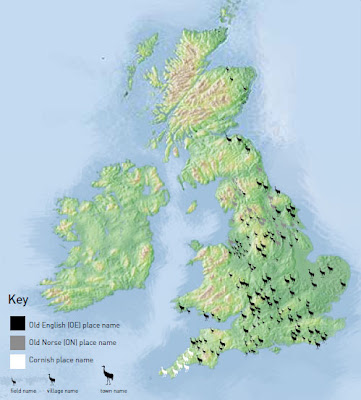Inspite of years of wildlife watching, I still get enormous pleasure from seeing common species, especially when it is possible to get up close to them.
Today (Saturday 5th March) I decided to make my first ever visit to the RSPB's Swell Wood, an ancient woodland overlooking West Sedgemoor on the Somerset Levels.
View from Swell Wood over West Sedgemoor
The woodland runs along a steep escarpment and is home to a large heronry. There were quite a few adult birds on nests, often with the partner bird standing nearby.
Herons at their nest in an oak tree
At the moment it is relatively quiet, as the chicks are yet to hatch - good thing too 'cos it was bitterly cold.
There was a very good summary of nest activity at the site, so I have plagiarised it:
In the car park there are a number of feeders and I sat in my car for ages using it as a hide...I was able to get quite close...
Nuthatch
Coal tit
Blue tit
Dunnock and coal tit
Dunnock
Great tit
Blue tits
Coal tits
Robin
Tree-creeper
Great tit
Great spotted woodpecker
Marsh tit
Coal and great tit
Nuthatch
Blackbird
Great spotted woodpecker
Great tit and female chaffinch
Pair of nuthatches
Nuthatch and Great tit
Great spotted woodpecker
On the way home, I stopped off at Greylake RSPB reserve - these wigeon took flight. The mass flocks of lapwing and ducks seen a few weeks ago have now gone.
During the afternoon I was also lucky enough to see 6+ of the released cranes in a very far off field. They were being radio tracked and were kindly pointed out to me by the people recording their movements...otherwise I would never have spotted them.
There is an interesting map at Slimbridge WWT (as noted in a recent BBC article on their website) showing towns and villages that have crane association. It goes to show how common they must have been, so its exciting to think that one day they may be thriving like little egrets are now.
Places with Crane (or a derivation of crane) in their name
Burrow Mump, Somerset






































